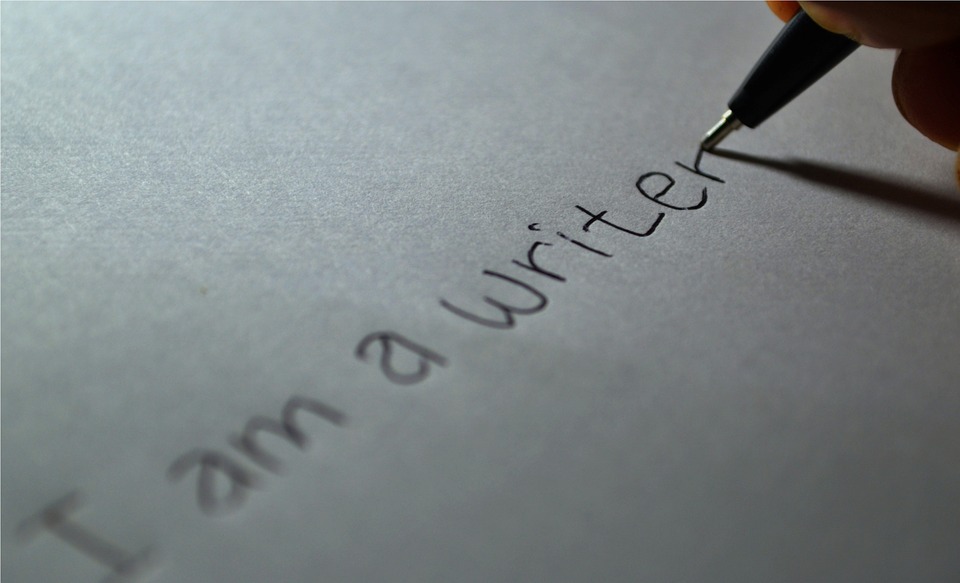Below is a real email I received recently. I’ve gotten the sender’s permission to share it with you, and changed her name and identifying details per her request:
“Dear Mr. Mullin,
You were at my school today (Large Midwestern Middle School), and you are going to be at my public library tonight. I can’t come, even though it would be awesome, because my mother isn’t too into my whole “I want to be an author” thing. I know you probably get these e-mails all the time, but it would pretty awesome if you could give me some advice. I have a crisis:
I spend all my time writing. I jot things down on sticky notes in class, and day-dream about ideas I should think over for the book I’m trying to write. I stay up late, and wake up early because I’m always wanting to write. But, I don’t know how to pull it off. I’ve tried Microsoft Word and Google Docs, but it always looks like a huge mess. Microsoft Word constantly loses my works, and I don’t know what to do. And, I’m always losing hope for it when it comes to my peers and family. I feel like they don’t take it seriously — like this is some little kid going up to his teacher and telling them they want to be the first person on Jupiter.
I want to write. I want to write as an adult. I know, and have known, that this was what I’ve wanted to do since I was really little and wrote my first poem.
Please, it would be pretty helpful if you could give me some advice.
Emily Notrealname”
Here’s my response, in hope that it might be helpful to other students in the same situation:
“Hi Emily,
First, let me apologize for taking so long to reply to your email. My new book launches tomorrow, and things have been a bit crazy, but I don’t normally get this far behind with my email.
Many writers go through the kind of thing you’re confronting. Dav Pilkey’s fourth grade teacher told him he’d never earn any money drawing or writing–now, of course, he’s sold 44 million Captain Underpants books and he’s rich and famous.
Your parents are probably just scared that you won’t be able to make a living writing. And they’re probably right, in the short term. Let me explain: almost all writers go through a period during which they have to do something else to stay alive while they’re honing their writing skills and working to break through. Gary Paulsen worked the beet fields of North Dakota. Dan Kronos took the midnight shift at a gas station and wrote between customers. Richard Peck and Stephen King were high school English teachers. I worked in a wide variety of corporate and construction jobs.
So here’s what I’d suggest: Figure out what you’re going to do to stay alive while you build a career in writing. Pitch your parents on the “staying alive” job. Tell them you’re going to keep writing and try to build a career as a writer, but show them you’ve got a solid back-up plan. Once your writing career takes off, you can quit the “staying alive” job.
To build your writing career, you’re doing exactly the right thing. WRITE! Even if you can only steal a few minutes in the morning or at night, write. Andre DuBois III wrote his breakout novel (House of Sand and Fog) in short spurts sitting in his truck on the way to or home from his construction job.
One other bit of advice: You’re going to have to master Microsoft Word. I know it sucks, but everyone in the publishing industry uses it, so your only choice is to suck it up and learn it. Take some classes if you need to–being able to use MS Word will be useful in lots of careers, not just writing, so I can’t imagine your parents will object. Figure out a good system for backing up your work. I use Google Drive and save a new copy of my file every day. Google Drive automatically backs up the work in progress files from my laptop to the cloud and to my desktop computer. Saving your work every day has the added benefit that you can prove when you created it, which will be handy in the very unlikely event that you ever need to prove the work is yours for a copyright case.
Good luck–it’s hard work, but you can do it. And writing can be a very remunerative career–I’m certainly doing well.
Best,
Mikep.s. Could I use your email and my response as a blog post? I think other young writers are probably in the same situation you’re in. I could change your name if you like. Let me know one way or the other, please. Thanks!”
Hope that’s helpful. If you have questions, comment below or email me at mike at mikemullinauthor dot com.









